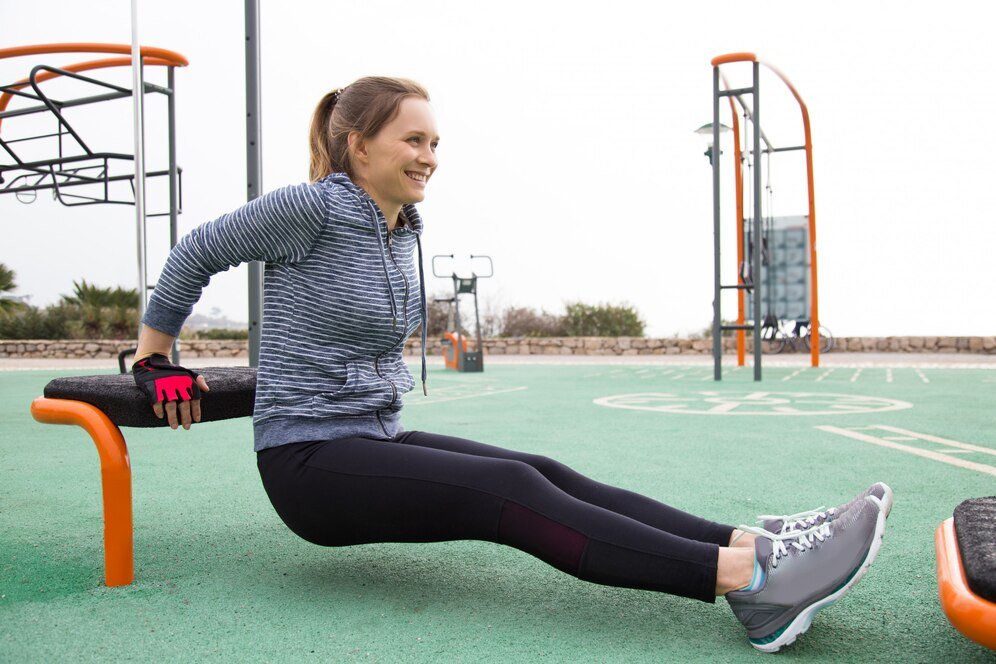weight lifting weights
Weight lifting, also known as resistance training, is a cornerstone of fitness for individuals looking to build strength, increase muscle mass, and improve overall health. Central to any weight-lifting regimen are the weights themselves. From dumbbells to barbells, kettlebells to weight plates, the choices can be overwhelming for beginners and seasoned lifters alike.
Benefits of Using Weight-Lifting Weights
One of the primary reasons people turn to weight lifting is to increase strength and build muscle mass. You stimulate muscle growth and adaptation by consistently challenging your muscles with progressively heavier weights.
Fat Loss and Metabolism Boost
Weight lifting isn’t just about bulking up; it’s also an effective tool for burning fat and boosting metabolism. Muscle tissue is metabolically active, meaning it burns more calories at rest than fat tissue.
Improved Bone Health
Weight lifting is not only beneficial for muscles but also for bones. Resistance training helps increase bone density, reducing the risk of osteoporosis and fractures, which is especially important as we age.

Choosing the Right Weight Lifting Weights
Selecting the appropriate weight-lifting weights is crucial for a safe and effective workout. Beginners should start with lighter weights to focus on proper form and technique before gradually increasing the load. Advanced lifters can employ strategies like progressive overload to continue challenging their muscles.
Common Mistakes to Avoid
Attempting to lift weights beyond your current capabilities can lead to injury and setbacks. It’s essential to choose weights that allow you to maintain proper form throughout each repetition.
Ignoring Form and Technique
Poor form not only reduces the effectiveness of your workout but also increases the risk of injury. Take the time to learn proper lifting techniques and focus on executing each exercise with precision.
Not Varying Weight Selection
To continue making progress, it’s essential to periodically adjust the weight lifted. Sticking to the same weight for an extended period can lead to plateaus and hinder results.
Tips for Effective Weight Lifting Workouts
Before diving into heavy lifting, it’s crucial to prepare your muscles and joints with a thorough warm-up. Dynamic stretches and light cardio can help increase blood flow and prevent injury.
Focus on Compound Exercises
Compound exercises target multiple muscle groups simultaneously, making them highly efficient for strength and muscle gain. Incorporate movements like squats, deadlifts, and bench presses into your routine.
Incorporate Progressive Overload
Progressive overload is the gradual increase of stress placed on the body during training. Whether through adding more weight, increasing reps, or reducing rest periods, consistently challenging your muscles is key to continued growth.
Safety Precautions and Injury Prevention
Seek guidance from a qualified trainer or experienced lifter to ensure you’re performing exercises correctly. Pay close attention to proper posture and alignment to minimize the risk of injury.
Listening to Your Body
While pushing your limits is essential for progress, it’s equally important to listen to your body’s signals. If something doesn’t feel right or causes pain, stop immediately and reassess your approach.
Rest and Recovery
Allowing adequate time for rest and recovery is essential for muscle repair and growth. Aim for at least one day of rest between weight lifting sessions and prioritize quality sleep to optimize recovery.


The Role of Weight Lifting Weights in Different Fitness Goals
Whether your goal is to build muscle mass, increase strength, or enhance endurance, weight lifting weights can be tailored to suit your objectives. Adjusting factors like weight, reps, and rest periods allows for customization to meet specific fitness goals.
Nutrition and Hydration for Optimal Weight Lifting Performance
Protein is essential for muscle repair and growth, making it a vital component of any weight lifter’s diet. Aim to consume lean protein sources like chicken, fish, tofu, and legumes to support your training efforts.
Hydration Tips for Heavy Lifting Sessions
Proper hydration is crucial for performance and recovery during weight lifting workouts. Drink water consistently throughout the day and consider electrolyte replacement drinks for intense training sessions.
How to Incorporate Weight Lifting Weights into Your Fitness Routine
The frequency of weight lifting workouts depends on factors like experience level, goals, and recovery capacity. Beginners may start with two to three sessions per week, while advanced lifters may train more frequently with proper recovery protocols.
Split Routines vs. Full-Body Workouts
Both split routines (dividing workouts by muscle groups) and full-body workouts have their advantages. Experiment with different training splits to find what works best for your body and goals.
Tracking Progress and Setting Goals
Keeping track of your workouts allows you to monitor progress, identify trends, and adjust your approach accordingly. Record details like weights lifted, reps performed, and subjective feedback on each exercise.
Setting Realistic Objectives
Set both short-term and long-term goals to stay motivated and focused on your weight lifting journey. Make sure your goals are specific, measurable, achievable, relevant, and time-bound (SMART) for maximum effectiveness.
Common Myths and Misconceptions About Weight Lifting Weights
Contrary to popular belief, weight lifting does not automatically result in bulky muscles, especially for women. Most individuals, regardless of gender, do not have the genetic predisposition to develop significant muscle mass without dedicated effort and specific training protocols.
Weightlifting Stunting Growth
There is no scientific evidence to support the claim that weight lifting stunts growth in adolescents. When performed with proper supervision and technique, resistance training can actually promote healthy growth and development.
Age Restrictions
Weight lifting can be safely practiced by individuals of all ages, provided proper precautions are taken. Older adults, in particular, can benefit from strength training to maintain muscle mass and functional independence.
The Psychological Benefits of Weight Lifting
Stress Relief
Exercise, including weight lifting, is a natural stress reliever, thanks to the release of endorphins (feel-good hormones). Regular physical activity can help alleviate symptoms of anxiety and depression.
Increased Confidence and Self-Esteem
Achieving personal records and making progress in the gym can significantly boost self-confidence and self-esteem. The sense of accomplishment derived from overcoming physical challenges translates into other areas of life.
Celebrity Endorsements and Success Stories
Many professional athletes incorporate weight lifting into their training routines to improve performance and prevent injuries. From basketball players to swimmers, the benefits of resistance training are widely recognized in the sports world.


Transformation Stories from Regular Individuals
Countless individuals have experienced remarkable transformations through weight lifting, both physically and mentally. These success stories serve as inspiration for others embarking on their fitness journeys.
Resources for Further Learning and Support
Joining online communities and forums dedicated to weight lifting provides a valuable source of support, advice, and motivation. Connect with like-minded individuals to share experiences and learn from each other.
Certified Trainers and Coaches
Working with a certified personal trainer or coach can accelerate your progress and ensure you’re following safe and effective training practices. Invest in professional guidance if you’re serious about reaching your fitness goals.
Conclusion
Weight lifting weights are essential tools for anyone looking to improve strength, build muscle, and enhance overall health and fitness. By incorporating weight lifting into your workout routine and following proper guidelines for selection, form, and progression, you can unlock a world of physical and mental benefits.
FAQs
Is it necessary to lift heavy weights to see results?
- Not necessarily. While lifting heavy weights can stimulate muscle growth and strength gains, lighter weights with higher repetitions can also be effective, especially for beginners.
How often should I change my weight lifting routine?
- It’s beneficial to periodically change your routine to prevent plateauing and keep your body challenged. Aim to switch things up every 6-8 weeks.
Can I do weight lifting workouts at home without expensive equipment?
- Yes! Bodyweight exercises and inexpensive equipment like resistance bands can provide an effective resistance training workout from the comfort of your home.
Should I consult a doctor before starting a weight lifting program?
- If you have any underlying health conditions or concerns, it’s wise to consult with a healthcare professional before beginning any new exercise regimen, including weight lifting.
What should I do if I experience muscle soreness after a workout?
- Muscle soreness, known as delayed onset muscle soreness (DOMS), is common after intense exercise. Focus on gentle stretching, hydration, and rest to aid in recovery, and consider light activity to promote blood flow to the affected muscles.
